
The 7 Vinyl Flooring Trends for 2025
Vinyl flooring is improving, offering homeowners stylish, durable, and flexible options. Here are the top vinyl flooring trends for 2025:
1. Wide Plank Vinyl Flooring
Wide planks make rooms look bigger and more luxurious. This trend highlights the wood-like appearance in vinyl, providing a modern and timeless look.
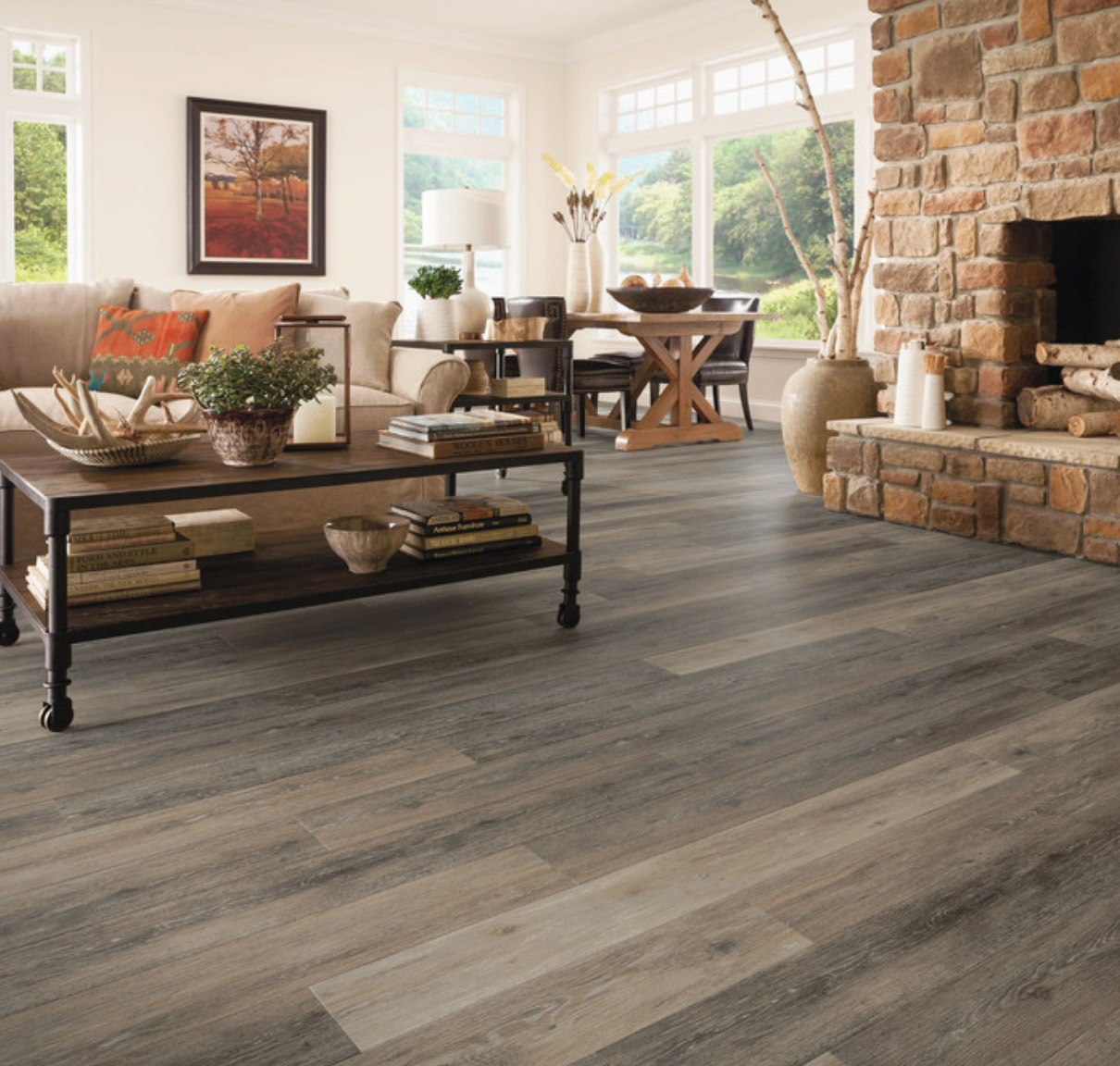
2. Herringbone Patterns
Classic patterns like herringbone are returning, adding style and elegance to any space. These layouts create a dynamic look suitable for both traditional and modern designs.

3. Chevron Patterns
Chevron vinyl features a bold, sleek style that’s popular for 2025.

4. Mixed Wood Tones and High Variation Designs
Mixed wood tones add depth and character, moving toward more natural and unique styles.
5. Stone-Look Vinyl (Slate, Marble, Travertine)
Vinyl that mimics stone provides elegance with comfort and affordability. These styles offer a high-end look for various rooms.
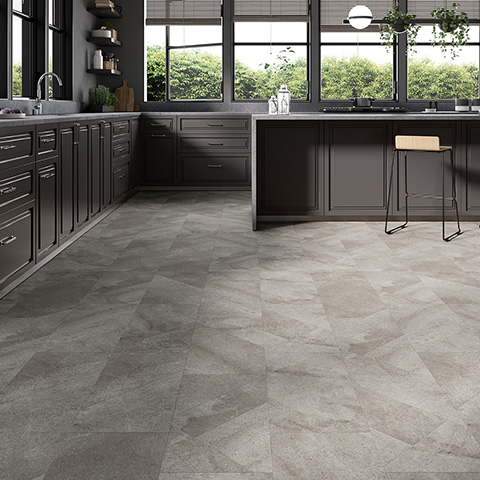
6. Matte Finishes and Low-Sheen Textures
Matte finishes and low-sheen textures are popular for hiding scratches and dust, offering a sleek appearance with less maintenance.
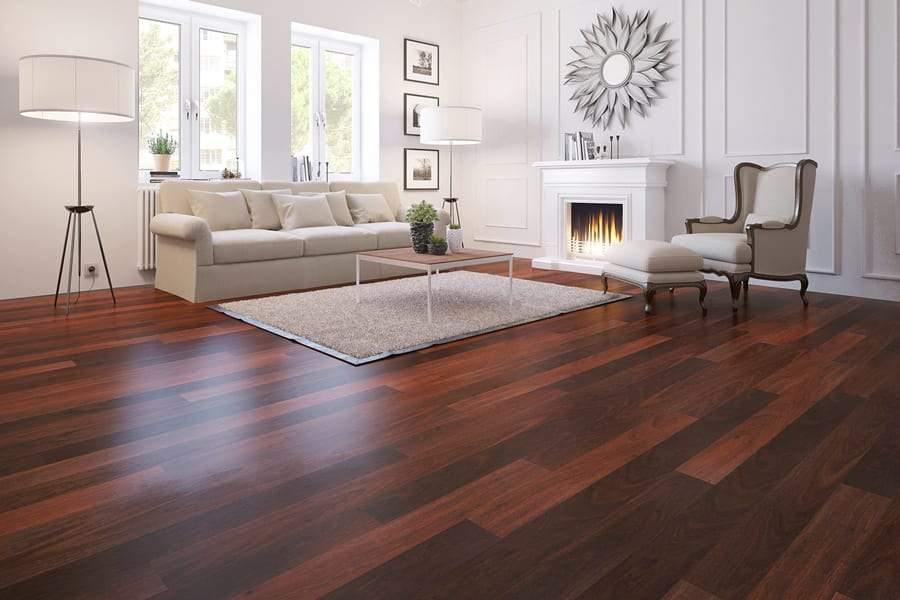
7. Natural Grain Embossing and Registered Finishes
New printing technology makes vinyl look and feel like real wood with realistic textures.

8. Seamless Indoor-Outdoor Transitions with Vinyl Tile
Vinyl tiles that connect indoor and outdoor areas are trending, offering durability and weather resistance.
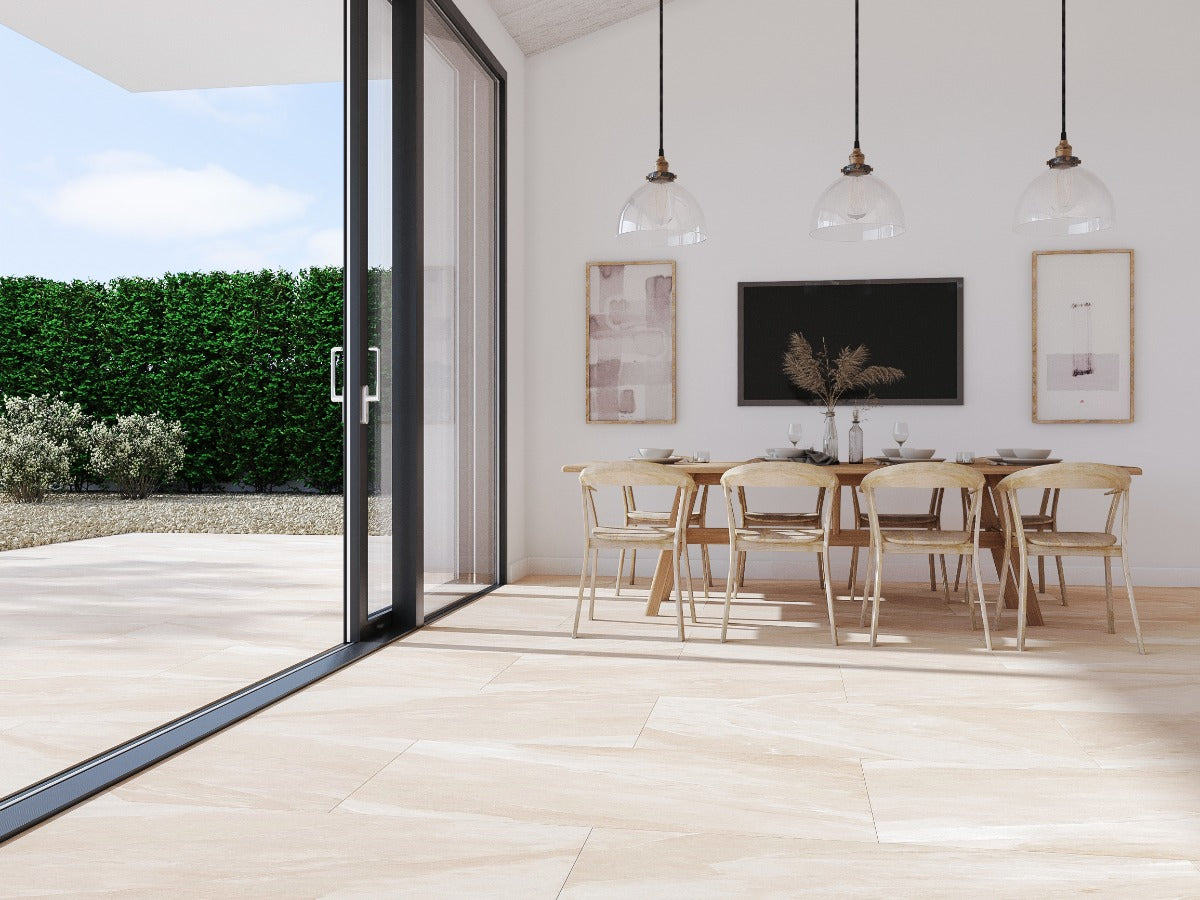
Vinyl Flooring Colors & Finishes Trending Now
In 2025, vinyl flooring colors are shifting to warm, natural shades with rich textures. These styles make rooms feel cozy and interesting.
🌾 Warm Greige and Honey Oak Tones
Greige, a mix of grey and beige, fits well with modern farmhouse and transitional styles. Honey oak adds a warm, timeless feeling to kitchens and living rooms.

🏖️ Coastal Whitewashed Planks
Light, beach-inspired tones are trendy again. These whitewashed planks make small rooms brighter and feel relaxed.

☕ Rich Espresso and Charcoal Tones
Dark colors like espresso and charcoal offer a modern, high-contrast look. They also help hide dirt in busy areas.

🪵 Distressed and Reclaimed Wood Looks
Vinyl with aged textures looks like reclaimed wood, great for rustic or industrial styles. It adds character without the upkeep of real wood.

🎨 Subtle Pattern Layering for Depth
Some vinyl floors now have gentle wood grains or mineral patterns, adding depth without being overwhelming.

Best Vinyl Flooring Types by Room
Choosing the best vinyl flooring for each room ensures it works well, lasts long, and looks good.
Kitchens: Waterproof LVP with Slip Resistance
Kitchens get busy and can be wet. Waterproof Luxury Vinyl Plank (LVP) with slip resistance is durable and safe. It looks like wood or stone and feels nice underfoot.

Bathrooms: Sheet Vinyl or Rigid Core Vinyl Tiles
Bathrooms need water-resistant flooring. Sheet vinyl is seamless and water-resistant, and rigid core vinyl tiles are strong with many designs.

Living Rooms: Textured Wood-Look LVP
Textured wood-look LVP in living rooms offers the warm look of hardwood with the strength of vinyl. It’s great for comfort and style.
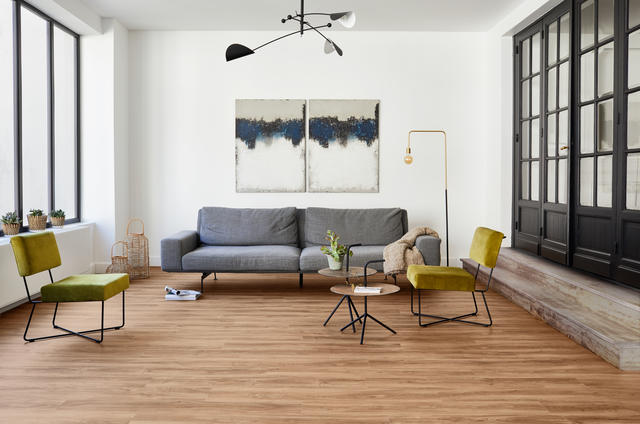
Entryways & Mudrooms: Scratch-Resistant Vinyl Tile
Entryways and mudrooms face a lot of traffic and dirt. Scratch-resistant vinyl tiles are durable and easy to clean, perfect for these areas.

Rentals: Peel-and-Stick or Click-Lock Vinyl Planks
For rentals, peel-and-stick or click-lock vinyl planks are easy to install and remove. They are affordable and look nice.

Top Reasons to Choose Vinyl Flooring in 2025
Vinyl flooring is still a favorite in 2025, and it’s clear why. It’s a top pick for those wanting a modern look, strength, and low prices.
💧 1. Waterproof and Tough for Any Space
Vinyl flooring works well in kitchens, bathrooms, or basements because it handles water and spills. Most luxury vinyl plank (LVP) and sheet vinyl are fully waterproof, perfect for wet places.
🎨 2. Stylish and Cost-Effective
Vinyl floors now mimic real wood, stone, or tile and often feel authentic, too. You get the elegant look of hardwood or marble without the high price or upkeep.
🛠️ 3. Simple to Install on Your Own
With click-lock or peel-and-stick options, many vinyl floors are simple to lay down without a professional. They’re great for quick home updates or temporary changes in rented areas.
🦶 4. Soft and Cozy to Walk On
Vinyl floors are softer than ceramic tile or hardwood. They offer comfort and warmth, especially with a padded layer, whether you’re standing for long periods or have kids playing barefoot.
Vinyl Flooring Cost Breakdown (2025 Estimates)
Vinyl flooring is a budget-friendly choice for stylish, strong floors in 2025. Here’s a look at the typical costs:
💲 Vinyl Flooring Cost Per Square Foot (Materials Only)
| Type | Average Price (2025) | Key Benefits |
|---|---|---|
| Sheet Vinyl | $1 – $3 | Seamless, waterproof, soft underfoot |
| Luxury Vinyl Plank (LVP) | $2 – $5 | Wood-look visuals, waterproof, cushioned |
| Luxury Vinyl Tile (LVT) | $2 – $6 | Stone/tile looks, modular design, durable |
| Rigid Core Vinyl (SPC/WPC) | $3 – $7 | Enhanced stability, dent-resistant, waterproof |
| Peel-and-Stick Vinyl | $1 – $2.50 | Easy DIY, renter-friendly, low-cost fix |
| Click-Lock Vinyl Plank | $2 – $4.50 | DIY-friendly, floating floor, easy to replace |
🛠️ DIY vs. Pro Installation Costs
- DIY Installation: Many vinyl types are homeowner-friendly, especially click-lock and peel-and-stick. You just need underlayment and basic tools.
- Professional Installation: Costs $2–$5 per sq ft and depends on material, subfloor condition, and room complexity.
⏳ Longevity & Investment Value
- Sheet Vinyl: 10–15 years (good for low-traffic or budget spaces)
- LVP & Rigid Core: 15–25 years (great for kitchens, living areas, and wet zones)
- Peel-and-Stick: 5–10 years (best for rentals or short-term changes)
👉 Want a detailed pricing chart with pros and cons? Check out our full Vinyl Flooring Cost Guide
When to DIY vs. Hire a Pro for Vinyl Flooring Installation
Vinyl flooring is popular because many styles can be installed without needing a professional. However, hiring a pro might save you time and stress, depending on your space and the product.
Here’s how to decide if you should do it yourself or call an expert:
🏠 DIY Installation: Best for Simple Spaces & Click Systems
If you’re using click-lock vinyl planks or peel-and-stick tiles, and your room is mostly square without tricky cuts, DIY is a good choice. These products are easy to install with basic tools, even for beginners.
You can save on labor costs and work at your own speed, which is great for small updates or budget projects.
🧑🔧 Hire a Pro: Best for Complex Layouts or Permanent Results
Consider hiring a flooring installer if:
- You’re working with glue-down vinyl or sheet vinyl (which can be tricky to align or cut)
- Your floor plan has angles, curves, or several rooms
- You need subfloor repair or leveling
- You want a warranty-backed, guaranteed result
Professionals have special tools for the best adhesion, cuts, and transitions, leading to a longer-lasting finish.
📊 DIY vs. Pro Installation Comparison
| Factor | DIY Installation | Professional Installation |
|---|---|---|
| Best For | Click-lock, peel-and-stick vinyl | Glue-down vinyl, sheet vinyl, complex layouts |
| Skill Level Required | Beginner to intermediate | None — handled by trained pros |
| Tools Needed | Utility knife, straightedge, mallet | Industrial cutters, rollers, glue tools |
| Prep Work | Homeowner must prep and clean subfloor | Installer handles subfloor leveling |
| Time Commitment | 1–2 days for most rooms | Usually completed in one day |
| Warranty Coverage | Often voided if not installed correctly | Manufacturer warranties typically valid |
| Average Install Cost | $0 (DIY) + tools (~$50–$100) | $2–$5 per square foot labor cost |
✅ Quick Tip
If your vinyl flooring needs glue or precise alignment — and you want it perfect — it’s wise to hire a pro installer.
👉 Need help with vinyl flooring installation? Check out our full How to Install Vinyl Flooring (DIY Guide) or Book a Free In-Home Consultation with our flooring experts.
Final Tips Before You Buy Vinyl Flooring
Before placing your order, take a few extra steps to make sure your vinyl flooring investment pays off — both in looks and long-term performance.
📦 Order Extra for Cuts & Waste
Always buy 10–15% more vinyl flooring than your room’s square footage. This covers edge cuts, mistakes, and leaves spare planks for future repairs — especially important for patterns like herringbone or large-format tiles.
💡 Test Samples in Home Lighting
Vinyl can look very different under store lighting vs. your kitchen or living room. Lay samples flat on your floor and observe them throughout the day under both natural and artificial light. This helps avoid unwanted color surprises after installation.
🛡️ Review Warranties & Wear Layer Specs
Check the wear layer thickness (measured in mils) — 12 mil or higher is best for high-traffic areas. Also confirm the manufacturer warranty covers water damage, fading, and installation errors. Some warranties require pro installation to remain valid.
💰 Consider Lifetime Value, Not Just Upfront Price
A cheaper floor may look good at first but wear out in a few years. Spend a little more on rigid core LVP or higher-end brands and enjoy 15–25 years of low-maintenance durability. It’s an investment that saves you money long term.
Need Help Choosing or Installing Your Vinyl Flooring?
Now that you’ve explored the latest vinyl flooring trends, material types, and cost breakdowns, you’re one step closer to upgrading your home with beautiful, durable floors. But if you’d prefer to skip the guesswork, measuring, and heavy lifting, our expert team is here to help.
We handle everything — from subfloor inspection and layout planning to the precise installation of luxury vinyl plank, sheet vinyl, vinyl flooring stairs, vinyl floor tiles and more.
We’ll also guide you in choosing the perfect vinyl style and format for your room, budget, and lifestyle — whether you’re outfitting a busy kitchen, bathroom, or rental property.
Click here to contact us today and schedule your free in-home consultation to see if we serve your area!





